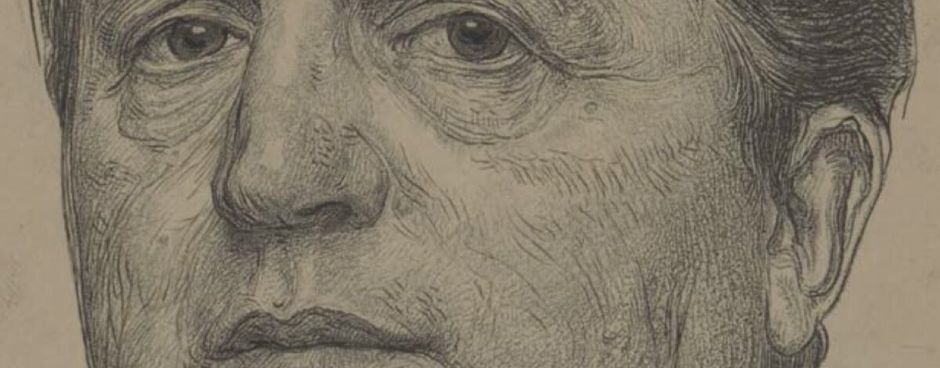Prophet without honour
In his own nation, he remains a prophet without honour. In the English-speaking world, a growing following of students, scholars and pastors are discovering Abraham Kuyper as a man of ideas still vitally relevant for the challenges facing Christians the world over today.
21 DECEMBER 2020 · 13:15 CET

One hundred years ago, thousands lined the streets to farewell the man they had once voted their most popular countryman.
He had started their country’s first modern political party and served as their prime minister 1901-1905.
He had shaped education by championing a distinctive multicultural diversity of schools and founded the second university in the nation’s capital.
Without him, the nation would have not had its unparalleled diversity of broadcasting companies based on different worldviews and interest groups – humanist, liberal, socialist, catholic, protestant, evangelical, 50-plussers,…
He edited a leading national daily paper for over forty years (even while serving as prime minister), earned himself the reputation of being one of the nation’s greatest journalists and for years chaired the National Journalists Circle.
He penned over 200 books and 20,000 articles – that’s four books per year and over one article per day for fifty years! His prodigious output and multi-faceted activities provoked a rival editor to describe him as ‘the man with ten heads and a hundred arms’.
His thinking shaped the unique cultural and institutional structure of his country, where social, political, religious and educational life was lived within the framework of a religious or ideological worldview for much of last century.
He began his career as a clergyman, preaching in leading churches of the nation before rebelling against the state church’s accommodation of modernism on the one hand and of the aristocracy on the other. Breaking free of a Constantinian model of elite-controlled congregations, he started a new denominational network of free churches.
He campaigned for the rights of the working class to form trade unions and to hold strikes, and initiated the still-running Christian Social Congress in 1891, addressing injustices of inequality and warning against the pitfalls of the free enterprise system and unchecked capitalism.
He was surely one of the most influential figures of his nation in modern times.
And yet, the vast majority of his fellow countrymen today, including the students of the university he fathered, would not know who the above referred to, or how their nation developed its unique institutions.
In his own nation, he remains a prophet without honour.
The nation? The Netherlands. The ‘prophet’? Abraham Kuyper.
The weekend of his anniversary in November I could find no mention of his centennial in the secular Dutch press. Some Christian papers however did give due attention to this giant of a figure. Yet even among Dutch Christians Kuyper is controversial and considered to be history.
His ideas failed, say some, leading to apartheid in South Africa. Others point to his aggravating personality which eroded his most loyal friendships. Still others blame world events after his death in 1920 for deflating the optimism of his vision for transformation of church, school and society.
Yet in the English-speaking world, a growing following of students, scholars and pastors are discovering him as a man of ideas still vitally relevant for the challenges facing Christians the world over today.
These ideas include:
- Worldview thinking – he was the father of modern worldview thinking, tracing all worldviews back to their (lack of) understanding about God.
- The lordship of Christ over all of life – he exposed the falseness of sacred-secular dichotomy, declaring in 1880 at the inauguration of the Vrije Universiteit that every square inch of human life was claimed by Christ for himself.
- Public theology – he pioneered a theology that embraced every sphere of life, not just church, family and self; a theology of public life engaging politics, law, education, business, arts healthcare, science and more.
- Common grace – he taught that God had promised to Noah never to allow the world to be destroyed; through conscience, human government and human advancements, and as Creator, Sustainer and Restorer, God bestows a measure of grace on all, sinner and saved like. (See here)
- Sphere sovereignty – he expounded that interconnected life spheres each were directly accountable to God: including the self, the family, the church, the state and voluntary associations (schools, universities, trade unions, societies, businesses, organisations, …).
Through Kuyper, evangelicals have begun to discover the place of public theology beyond the traditional spheres of self, family and church.
They are finding in Kuyper a mentor for addressing questions of pluralism, the role of the state, religious freedom, the recovery of democracy, creation care, international relations and more.
Where to start?
A good place to start learning about Kuyper would be these titles:
- Richard Mouw, Abraham Kuyper, A Short and Personal Introduction (Eerdmans)
- Peter Heslam: Creating a Christian Worldview: Abraham Kuyper’s Lectures on Calvinism (Eerdmans)
For those interested in a free ebook I wrote called Shapers of our modern age including a chapter on Kuyper and five other nation-shapers, write to me: [email protected].
The photo exhibition, Kuyper’s Amsterdam: then & now, in the LOOK UP bookstore/gallery at Prins Hendrikkade 50, Amsterdam, will be left on display until the end of the year, given the current COVID lockdown.
An interview between Simon Wood (YWAM Amsterdam base leader) and myself, on ‘the man with ten heads and a hundred arms’), can be viewed here.
For Dutch speakers, I interviewed author Johan Snel about his new book, De zeven levens van Abraham Kuyper, online here.
Jeff Fountain, Director of the Schuman Centre for European Studies. This article was first published on the author's blog, Weekly Word.
Published in: Evangelical Focus - Window on Europe - Prophet without honour
